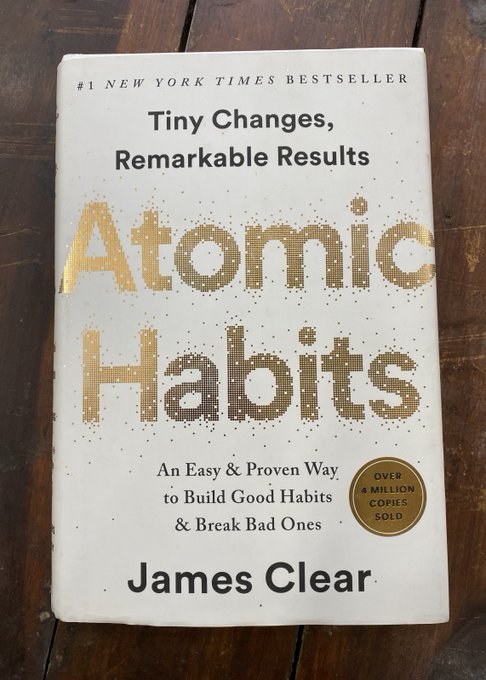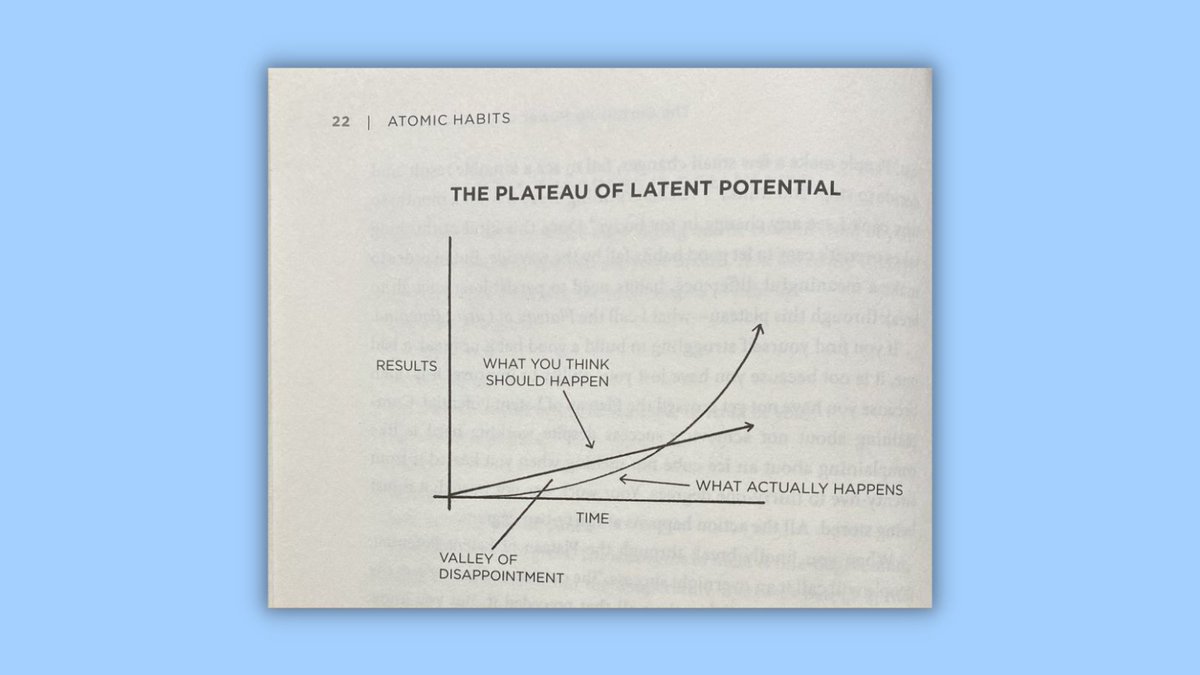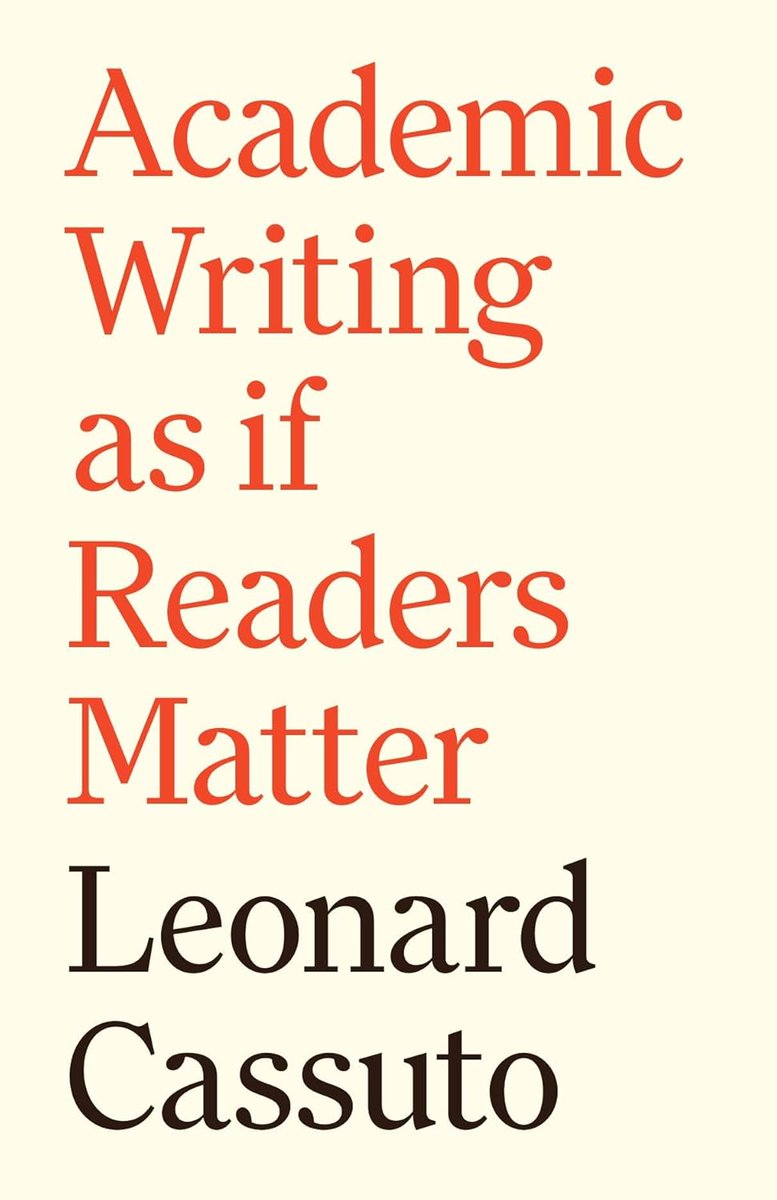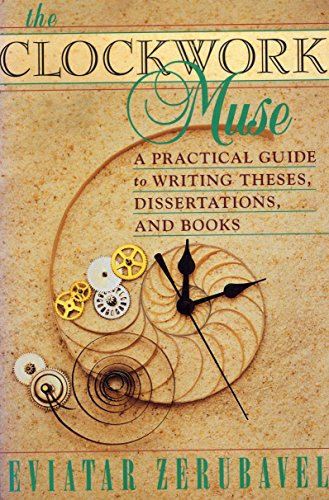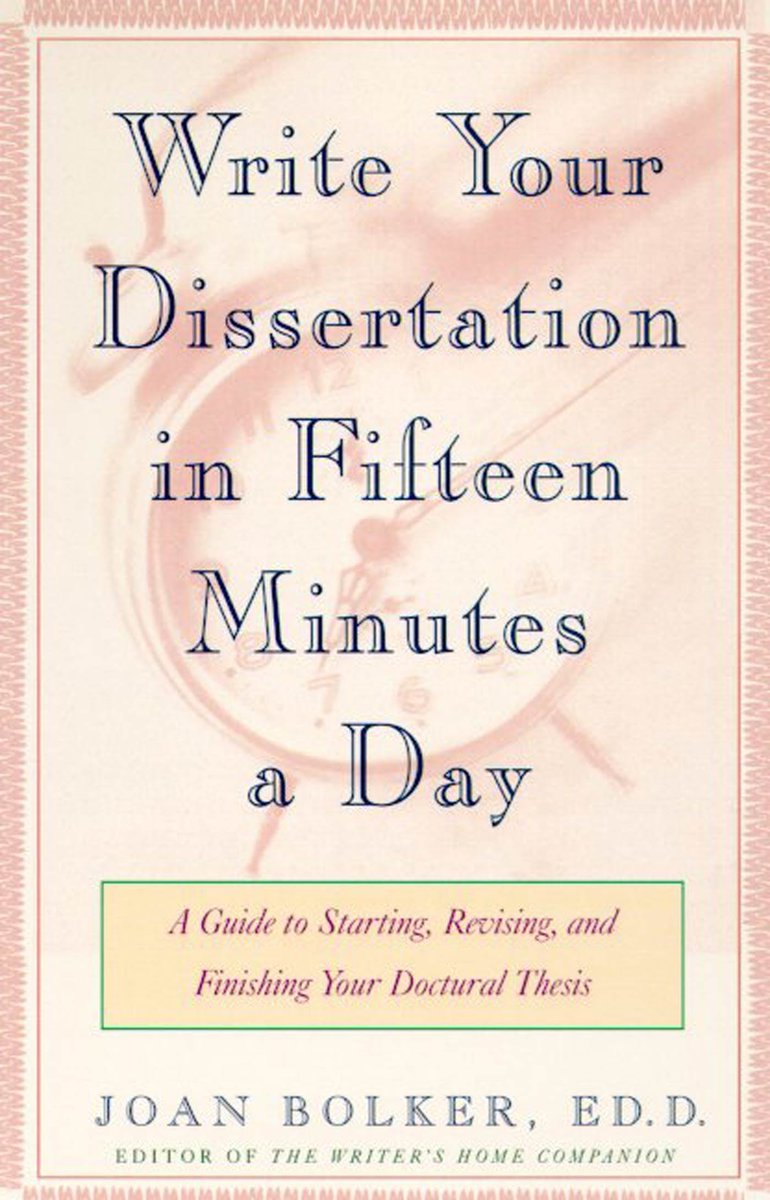How to build an academic writing habit (to write a lot and publish a lot):
In his book "Atomic Habits," James Clear writes about habits that are so small we don’t even notice them, but the power they have over us is immense.
He calls them atomic habits.
Although they are small, building atomic habits is VERY DIFFICULT.
Why?
He calls them atomic habits.
Although they are small, building atomic habits is VERY DIFFICULT.
Why?

If I go to the gym for a week, I'm still overweight at the end of it.
I don't see any change, and I give up.
I expect habits to work in a linear manner but that's not how they work.
I don't see any change, and I give up.
I expect habits to work in a linear manner but that's not how they work.
If I want a habit to work, I must stick with it long enough to cross a critical threshold.
Clear calls the time between the point we start a habit to the point we start seeing its first results "the plateau of latent potential."
Most people remain stuck within this plateau.
To see the results of any habit, we must cross the plateau of latent potential.
Most people remain stuck within this plateau.
To see the results of any habit, we must cross the plateau of latent potential.

But how do we cross this plateau of latent potential, or valley of disappointment?
Clear says we should NOT focus on goals (losing weight or publishing a paper).
Instead, we should build systems and processes that lead us to these goals.
Clear says we should NOT focus on goals (losing weight or publishing a paper).
Instead, we should build systems and processes that lead us to these goals.
Once you start building systems, it transforms your identity.
You no longer exercise because you want to lose weight.
You exercise because that's what a healthy person does and you ARE a healthy person.
You no longer exercise because you want to lose weight.
You exercise because that's what a healthy person does and you ARE a healthy person.
How do we use Clear's insights to develop a productive academic writing habit?
Start by building a simple writing routine.
Pick the time of day you feel you are at your productive best.
Set the timer to 25min, and start free writing whatever comes to your mind.
Pick the time of day you feel you are at your productive best.
Set the timer to 25min, and start free writing whatever comes to your mind.
Your aim should be to process your thoughts and ideas.
Don't fret over grammatical mistakes or punctuation errors.
Just put words on the page/screen.
Don't fret over grammatical mistakes or punctuation errors.
Just put words on the page/screen.
Do a couple of a couple of writing stints of 25min.
You'll have written a few hundred words.
Celebrate! Reward yourself.
You'll have written a few hundred words.
Celebrate! Reward yourself.
Stick with this routine for the next few months.
Guard your writing time jealously.
REMOVE distractions.
Put the phone in another room.
Disconnect the internet.
Communicate to your family you need this time to write.
Guard your writing time jealously.
REMOVE distractions.
Put the phone in another room.
Disconnect the internet.
Communicate to your family you need this time to write.
Initially, your writing may not make much sense to you, which is okay.
It'd mean you are in the plateau of latent potential.
It'd mean you are in the plateau of latent potential.
Don't be discouraged. Keep writing.
Stick with it and slowly your mind will start making meaningful connections.
Stick with it and slowly your mind will start making meaningful connections.
If you're unable to write on a given day for any reason, DON'T punish yourself.
Don't try to "make up" for the "lost day."
Shit happens. Be generous to yourself.
Don't try to "make up" for the "lost day."
Shit happens. Be generous to yourself.
If you can, become part of a writing community for accountability.
If you can't, develop a method to hold your own self accountable.
Read daily routines of other writers. See what works for you and adopt/adapt it.
If you can't, develop a method to hold your own self accountable.
Read daily routines of other writers. See what works for you and adopt/adapt it.
Your job is NOT to write a journal article or complete a dissertation.
Your job is to become the sort of person who finishes their dissertation and publishes journal articles.
Your job is to become the sort of person who finishes their dissertation and publishes journal articles.
Don't use demeaning words like "shitty" or "trashy" to describe your initial drafts.
They will make you resent the initial stages of your project.
Using positive words instead.
Example: this is a productive first draft with a lot of potential.
They will make you resent the initial stages of your project.
Using positive words instead.
Example: this is a productive first draft with a lot of potential.
Sooner or later you will come out of the plateau of latent potential.
And when you do, your progress will become exponential.
Example: it took me 6 months and 8 drafts to write my first journal article, and just 2 weeks and 3 drafts to write my fourth.
And when you do, your progress will become exponential.
Example: it took me 6 months and 8 drafts to write my first journal article, and just 2 weeks and 3 drafts to write my fourth.
Stay consistent and build an atomic habit of writing.
Remember you only have to do it ONCE.
And that's about it.
Remember you only have to do it ONCE.
And that's about it.
If you found this thread useful:
1. Scroll to the top and retweet the first tweet to share it with your friends and colleagues.
2. Follow me @MushtaqBilalPhD for more tips on academic writing.
1. Scroll to the top and retweet the first tweet to share it with your friends and colleagues.
2. Follow me @MushtaqBilalPhD for more tips on academic writing.
Quick question: do you think of your first drafts as "shitty," "trashy," or "messy?"
• • •
Missing some Tweet in this thread? You can try to
force a refresh


